For the past three months, Christine Redmond has been documenting the area of Posenchey in the Cambodian capital Phnom Penh, where non-profit organisations have been implementing emergency activities in response to the economic downturn caused by Covid-19.
In the Cambodian capital Phnom Penh, home to over two million people in the metropolitan area, it appears to be business as usual as Covid-19 prevention measures continue to ease.
From the outside, it seems the country has been relatively untouched health-wise, with less than 150 reported cases to date and no deaths. However, the pandemic has already caused economic shocks that the city’s poorest, largely unseen and unheard, are continuing to struggle to recover from.
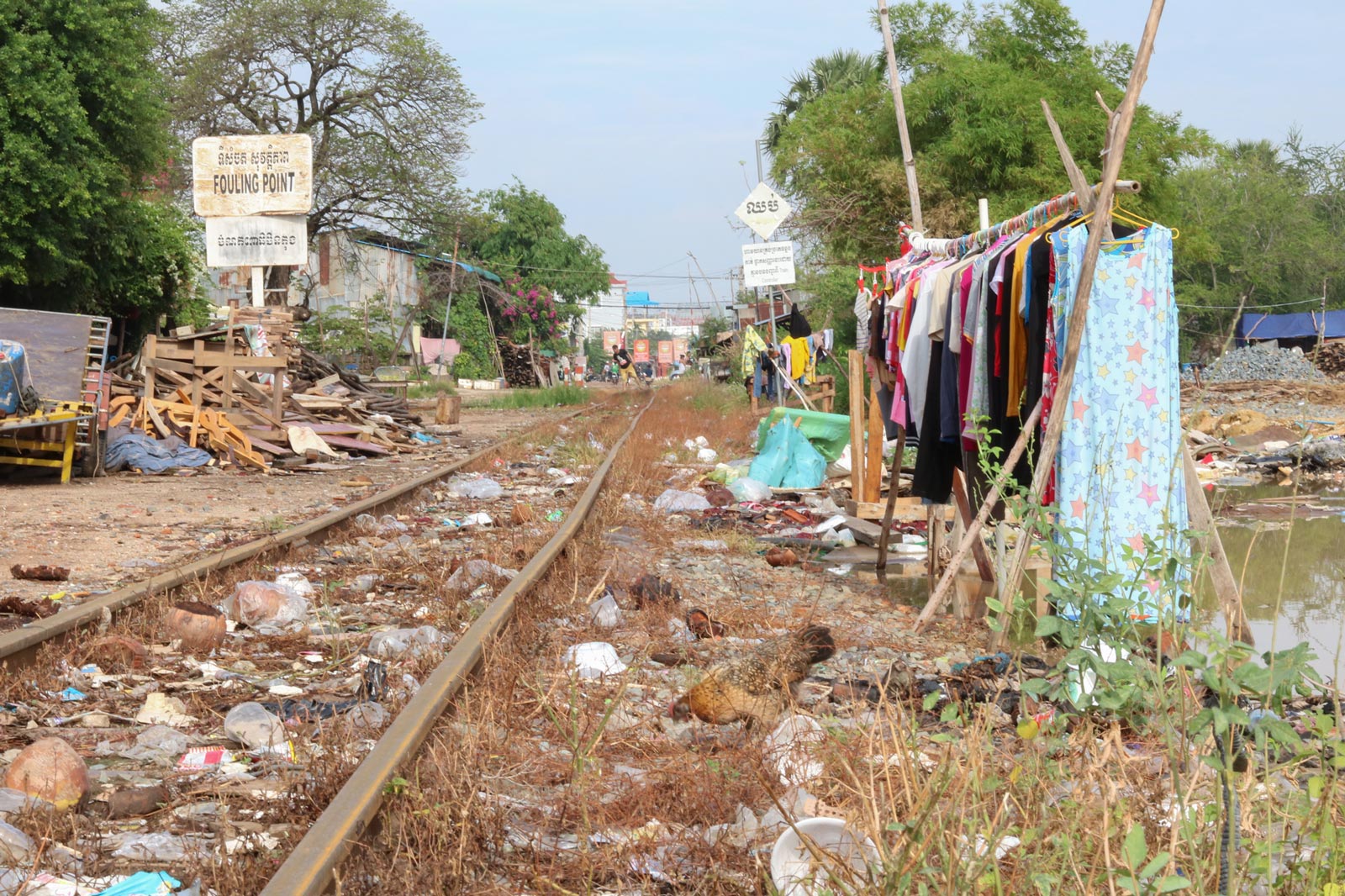
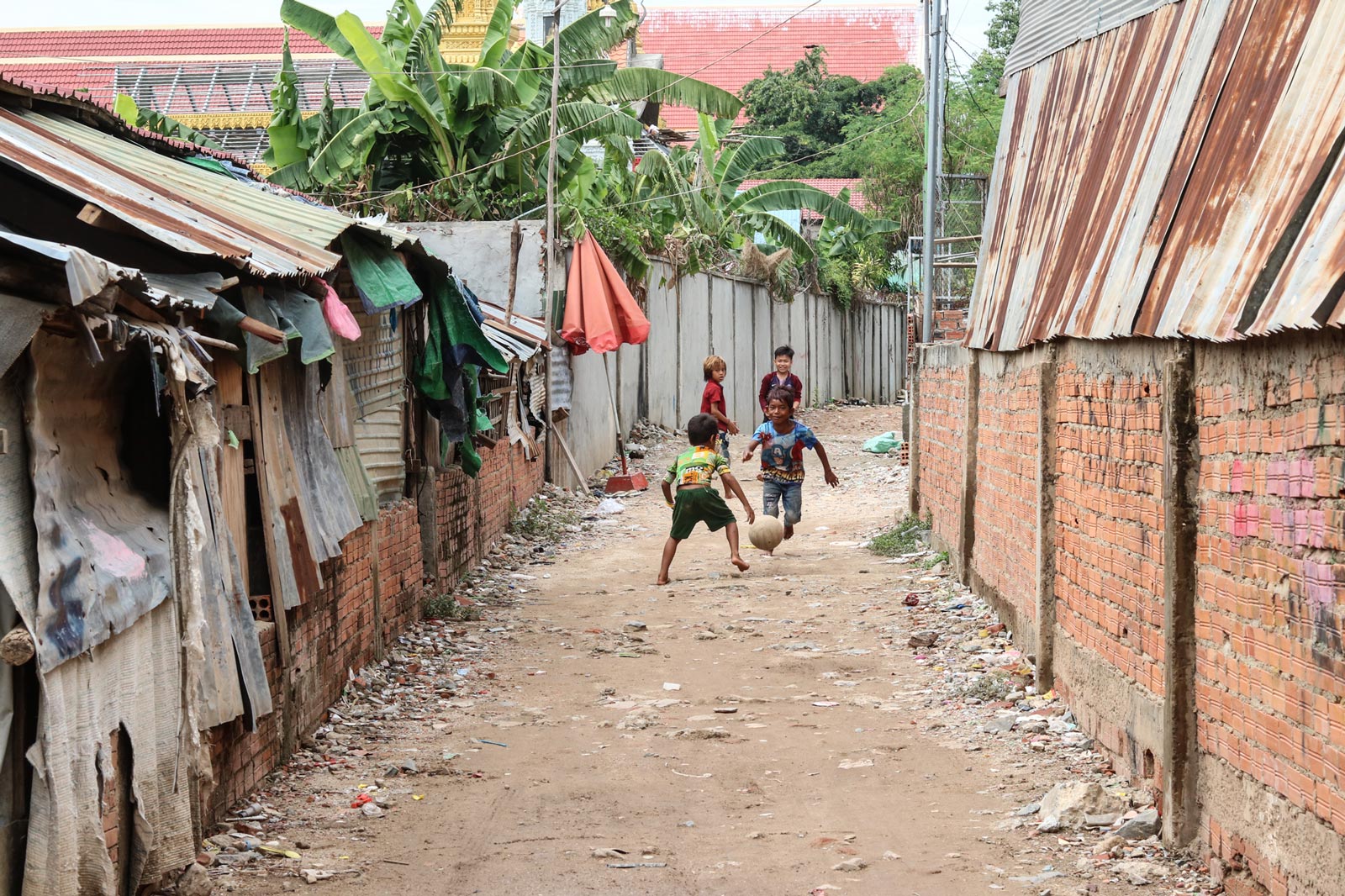
In Posenchey district, home to an urban poor settlement located along the city’s airport railway line, families are falling further into poverty and children are not only missing out on their education, but also their childhood, as the pressure mounts for them to earn an income in the face of a stuttering economy.
Late last month a government cash transfer programme was announced to support households identified as poor to respond to the needs of the country’s most vulnerable groups. But for the residents of Posenchey, even this lifeline comes at a cost as many need to return to their hometowns in rural provinces to receive the money, necessitating leaving their children behind in the capital.
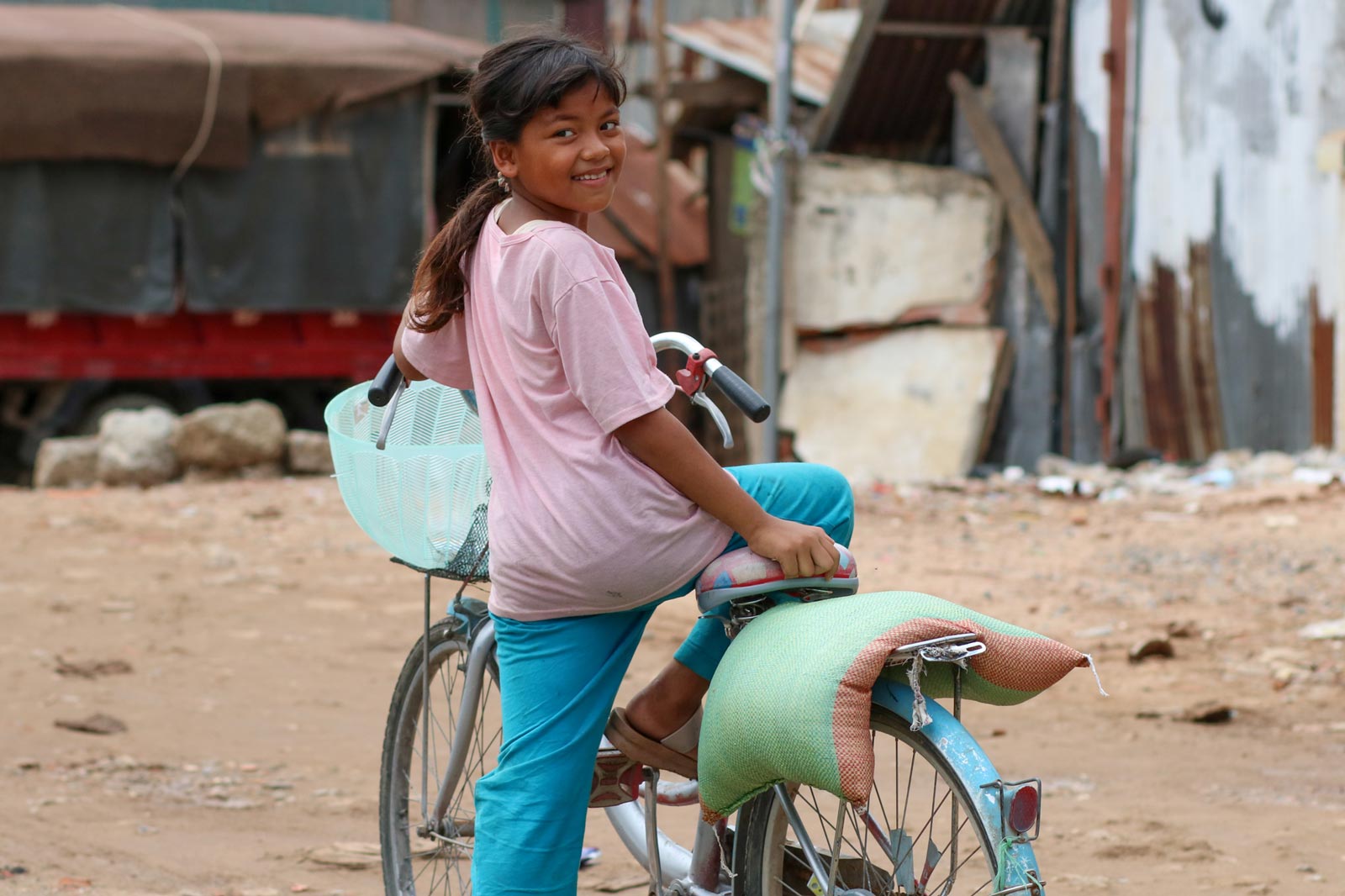
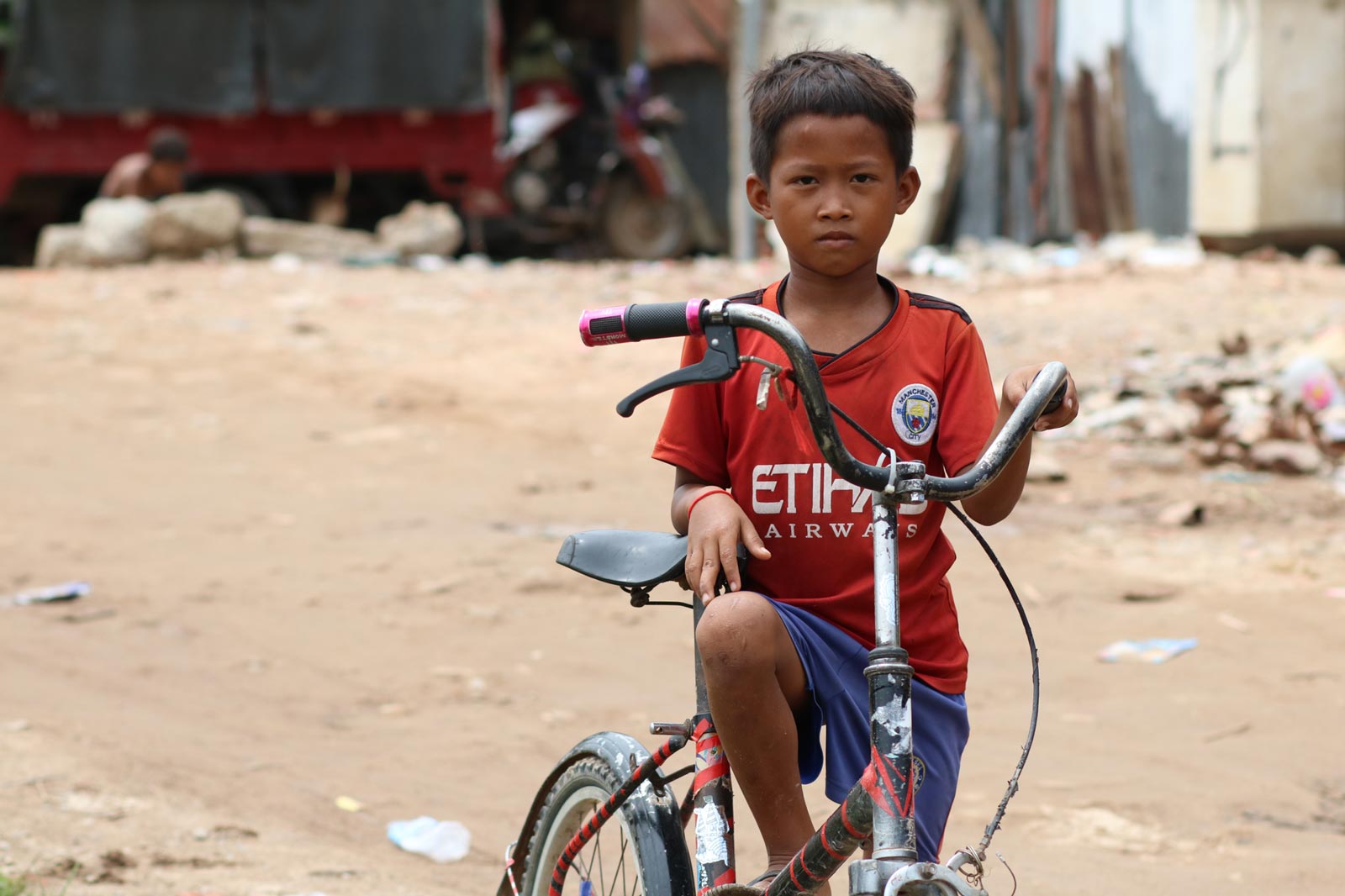
For twelve year old Chana*, Covid-19 and school closures have led to increased responsibilities. When she’s not caring for her younger siblings, she is on the streets scavenging plastic to support her family. She doesn’t have much time to learn or play anymore but enjoys riding her bike with her friend Ley*, who at just nine years old, is also scavenging plastic to supplement his family’s income.
Both Chana and Ley prefer to scavenge at night when the temperature is cooler. While they’d like to work together and keep each other company during these long nights, they usually separate to avoid directly competing with one another for their income.
Before the pandemic, the families living in the area were already struggling to make ends meet. Over the years, many had relocated to the capital from rural provinces in search of better economic opportunities, only to find themselves in similar or worse situations. Others were pushed out from their homes in the city’s centre, as redevelopment and rising prices forced them to the outskirts.
Largely uneducated, many rely on insecure labour to earn an income, such as plastic scavenging, tuk-tuk and moto taxi driving, dishwashing, cleaning, construction and factory work. But in the months following the Covid-19 outbreak, construction was halted, tourism and travel paused, garment factories closed and even the market value of plastic dropped, meaning work dried up for many of the inhabitants of Posenchey. Coupled with school closures, the suspension of school nutrition programmes, and fears over eviction, these factors are causing increased levels of uncertainty and concern among residents.
Prior to social distancing measures being put in place, non-profit organisations Aide et Action and YMCA were running an informal education centre, offering children a safe space to learn and play during the day as well as a nutrition programme. However, as the centre remains shut, in line with nationwide school closures, the children are playing on the street and access to quality education remains largely out of reach for this population in Posenchey.
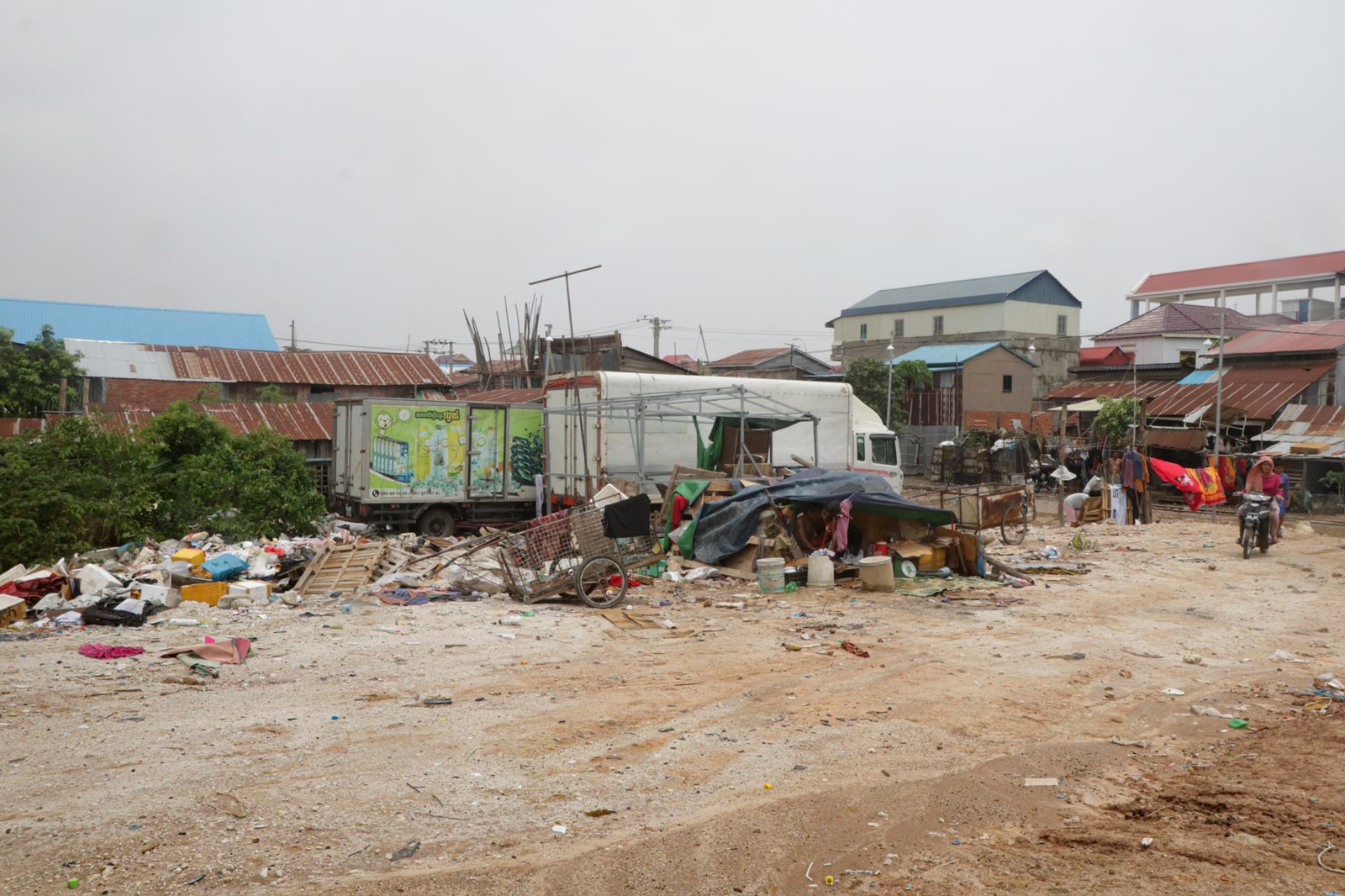
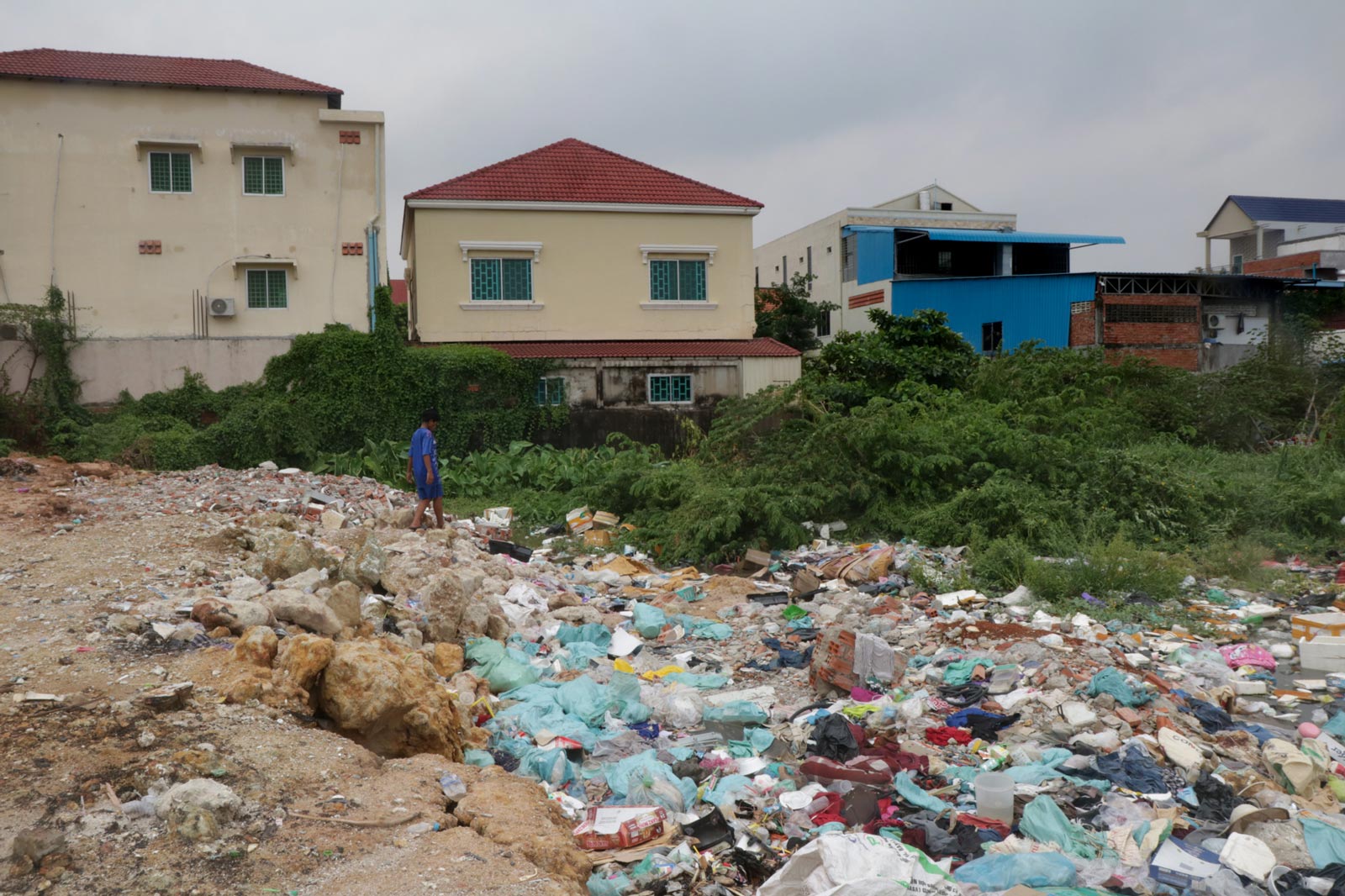
Mother-of-six Heng Thida* couldn’t afford to pay her rent after her husband passed away two years ago. She left her small, rented house and with the help of her neighbours built a temporary dwelling using materials she found in a nearby pagoda. Her new home, just metres from her old house, causes her a lot of concern.
“I’m afraid I’ll be moved, I have no papers, just a verbal agreement. I worry about it every night, that a new road will be built, that the land will be filled and that I’ll be forced to move,” she explains. Just months ago, a neighbouring building housing several families was knocked down and residents displaced, so it’s easy to understand Thida’s concerns.
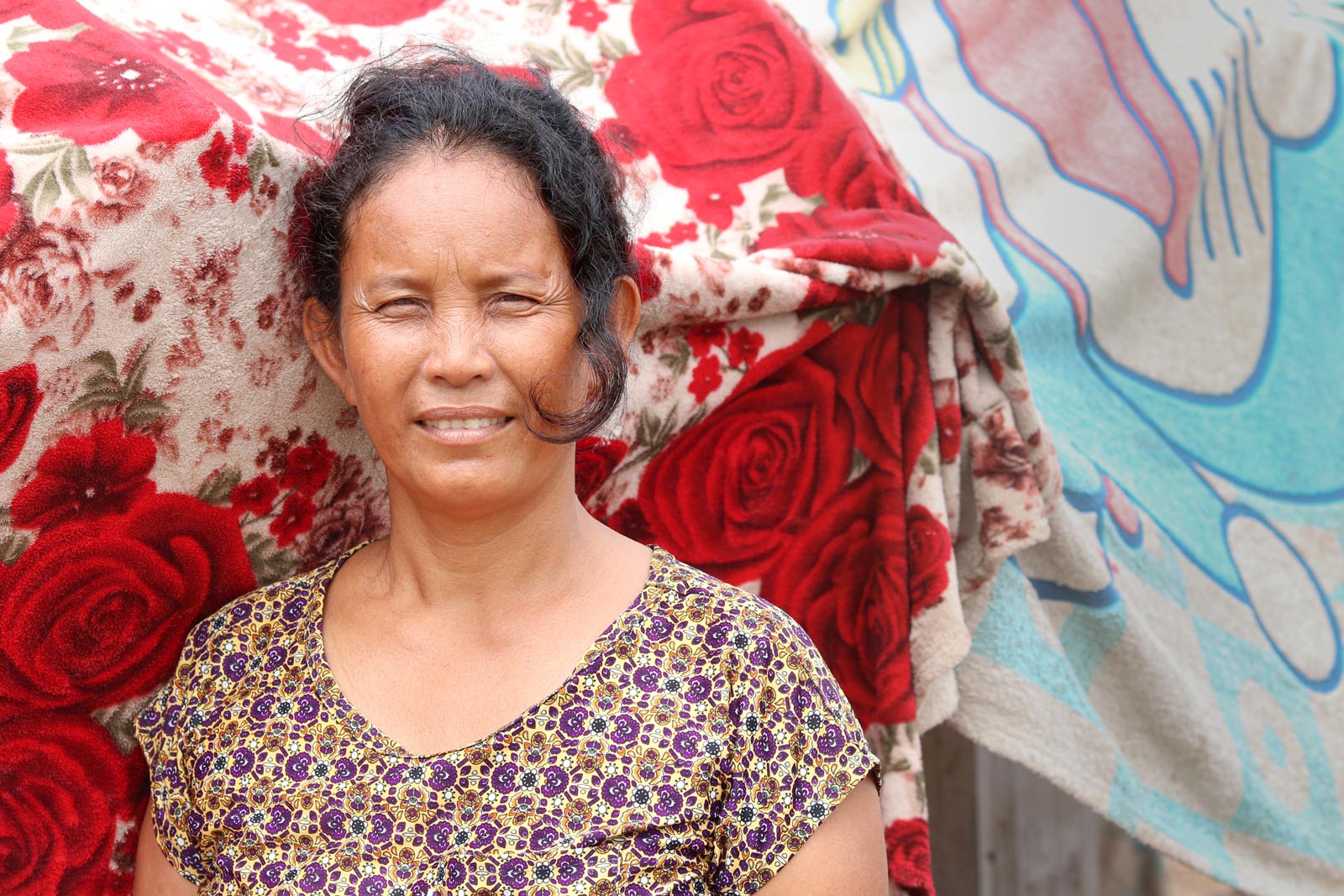
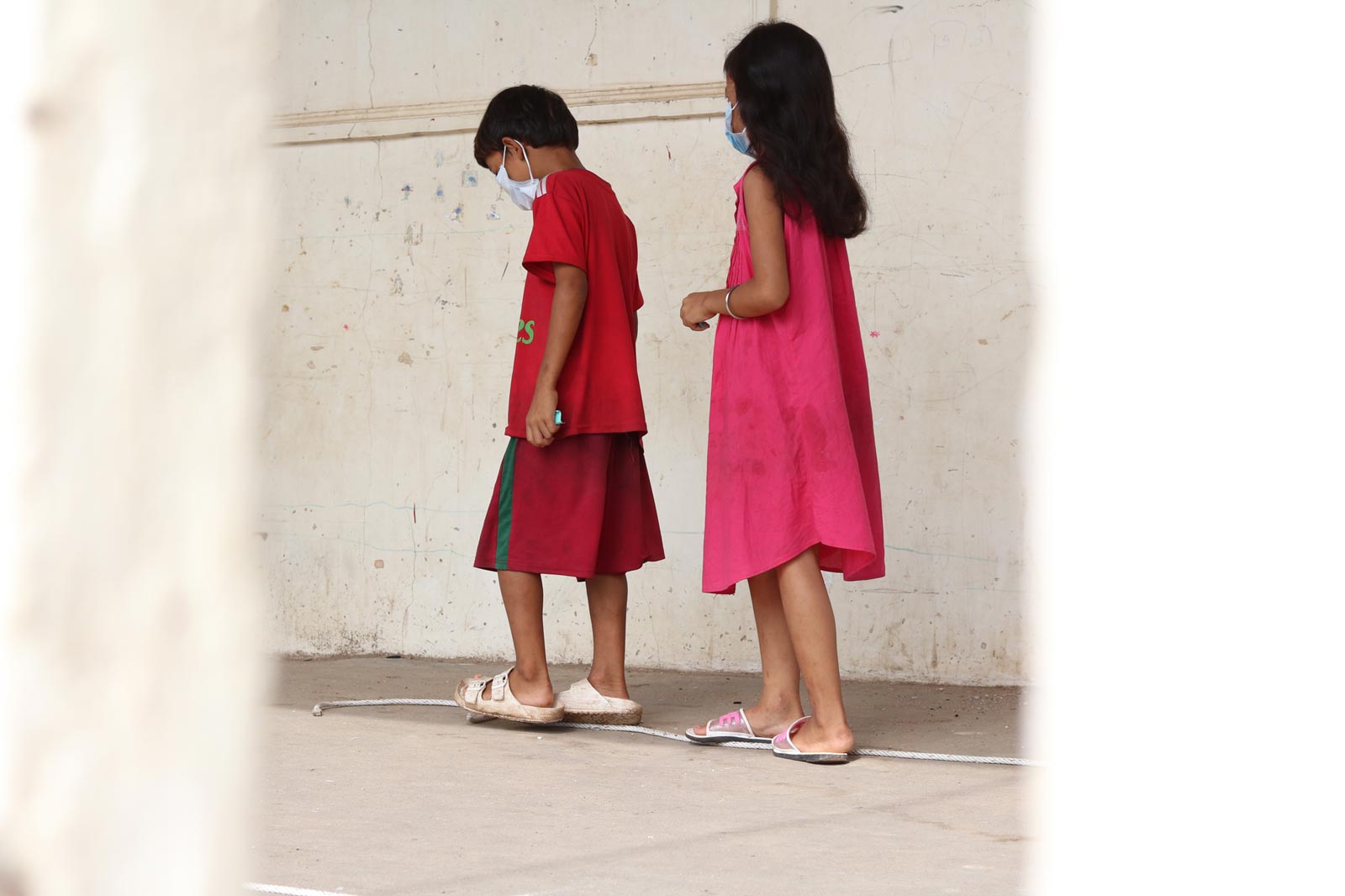
I don’t have enough food for my children right now so I am depending on the emergency rice distributions from NGOs working in the area
Thida’s home is also the source of her livelihood. She runs a small shop from it selling snacks, but she too is earning less than before.
“Since Covid-19, people here can’t afford to eat as much so my business has decreased,” she says. “I don’t have enough food for my children right now so I am depending on the emergency rice distributions from NGOs working in the area.”
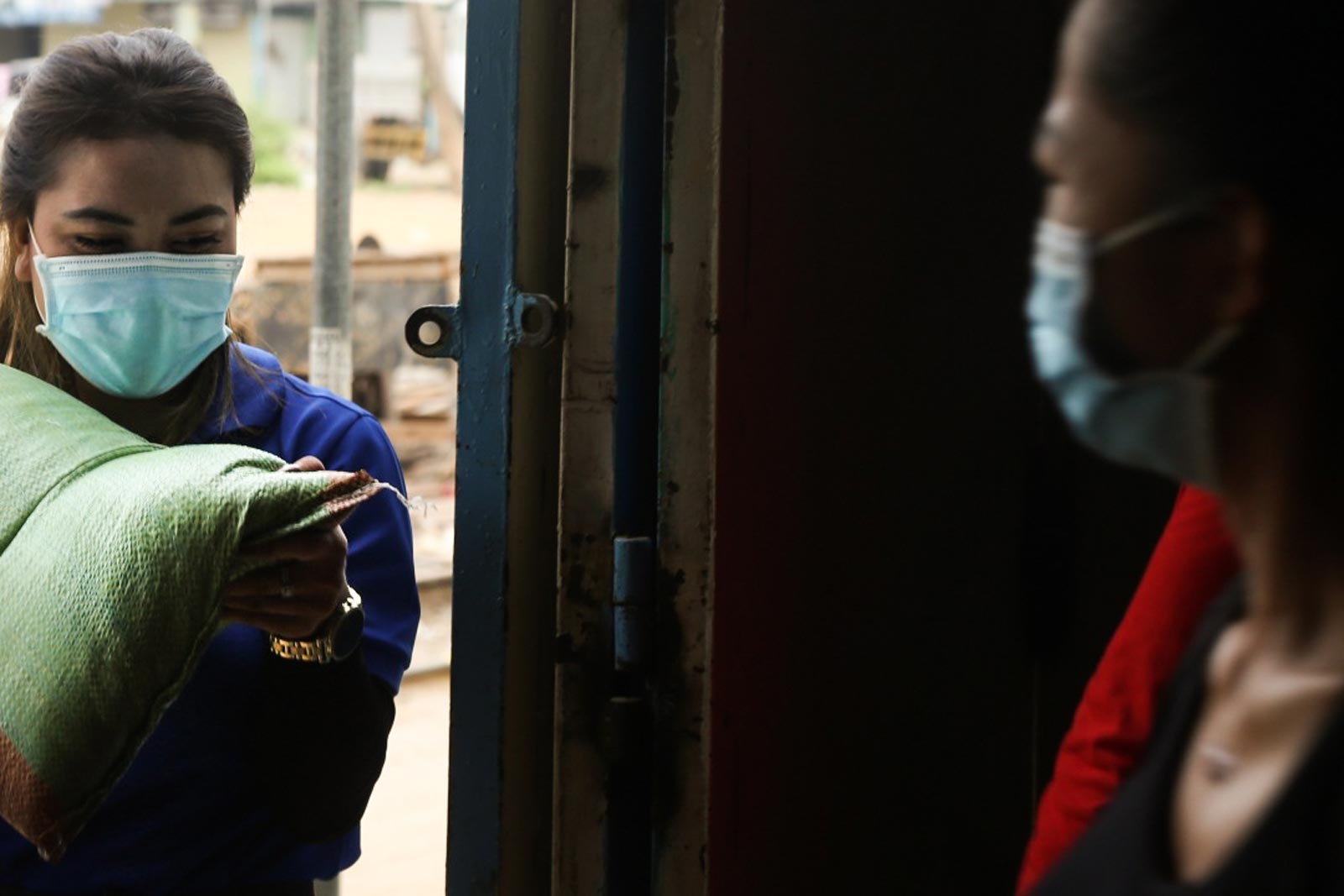
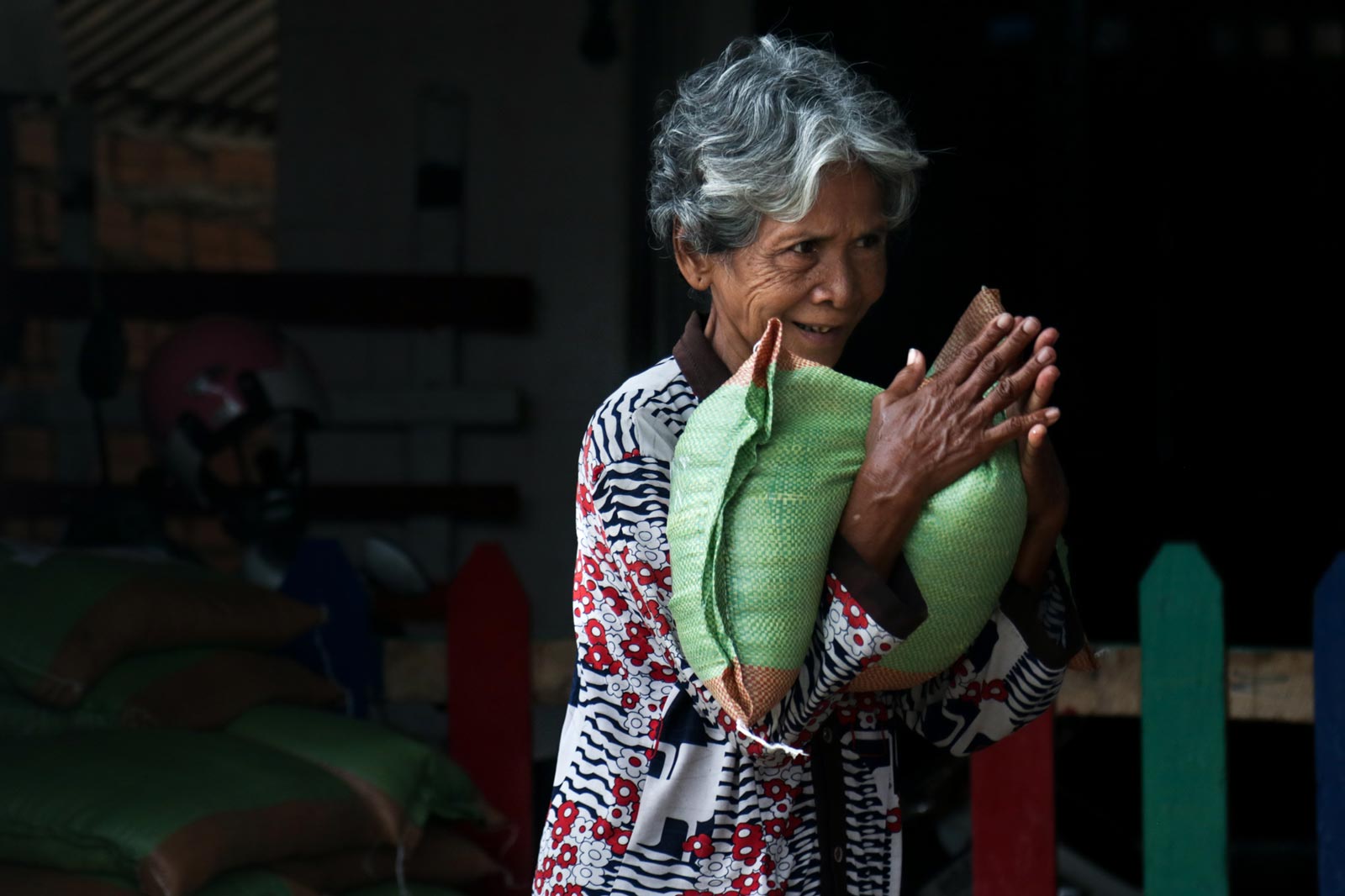

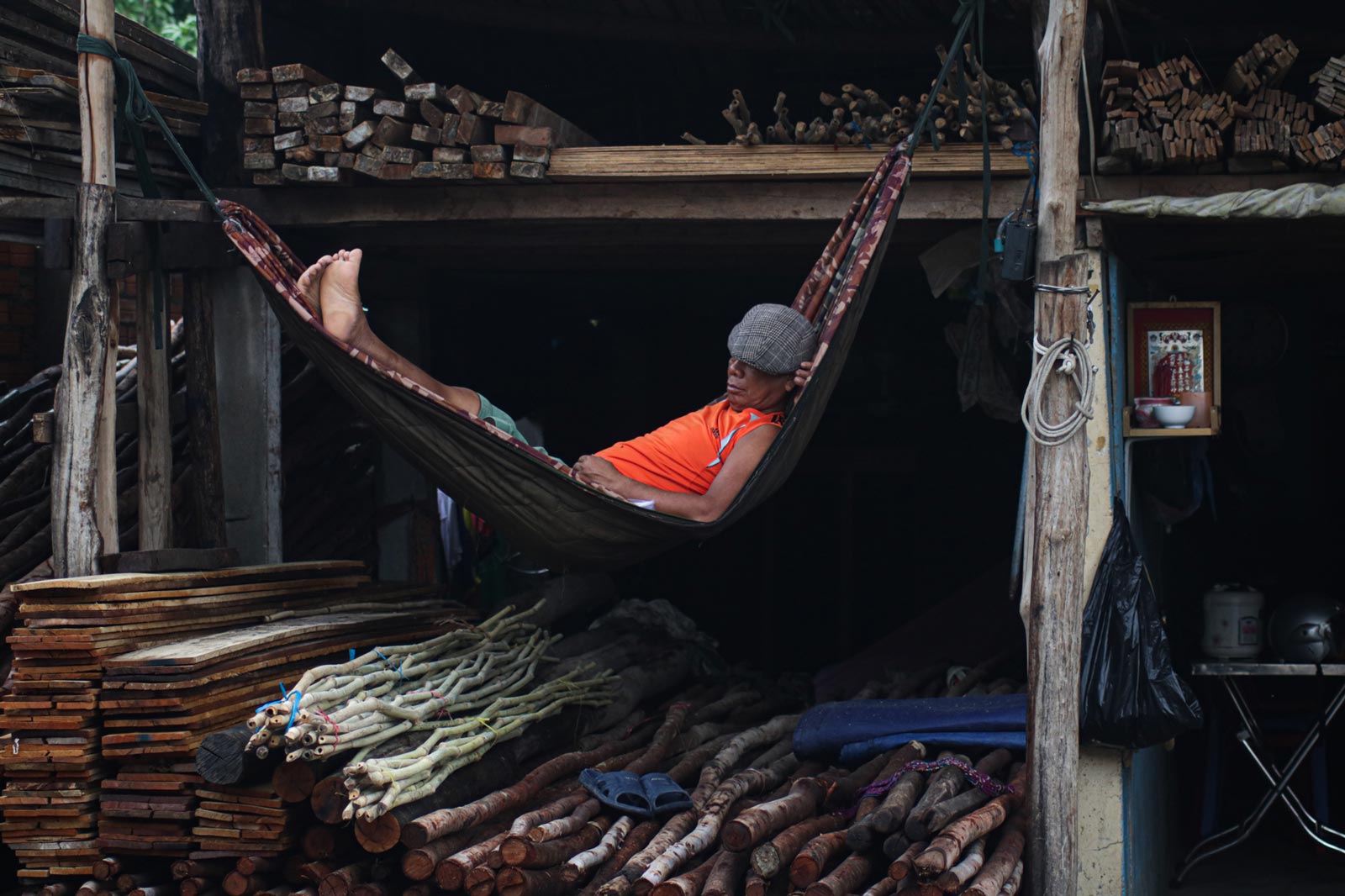
Since April 2020, Aide et Action, in partnership with YMCA, has distributed 3,000kg of rice to families in need in Posenchey. Refreshers on how to wash hands were also given as well as materials such as soap, children’s books and other educational materials.
While this isn’t a long term, sustainable solution to the problems residents are facing, it’s been a much-needed lifeline during the pandemic.
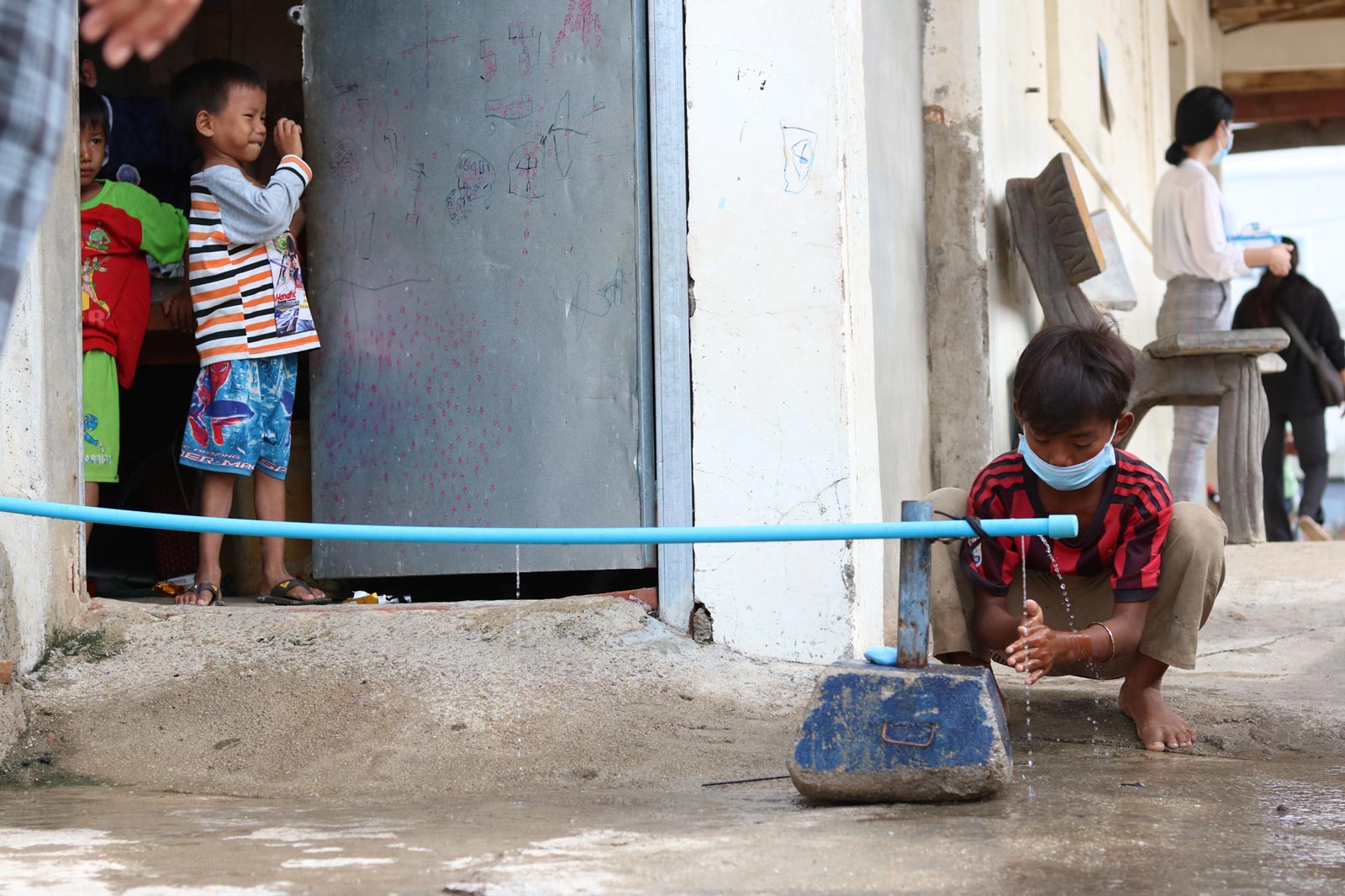
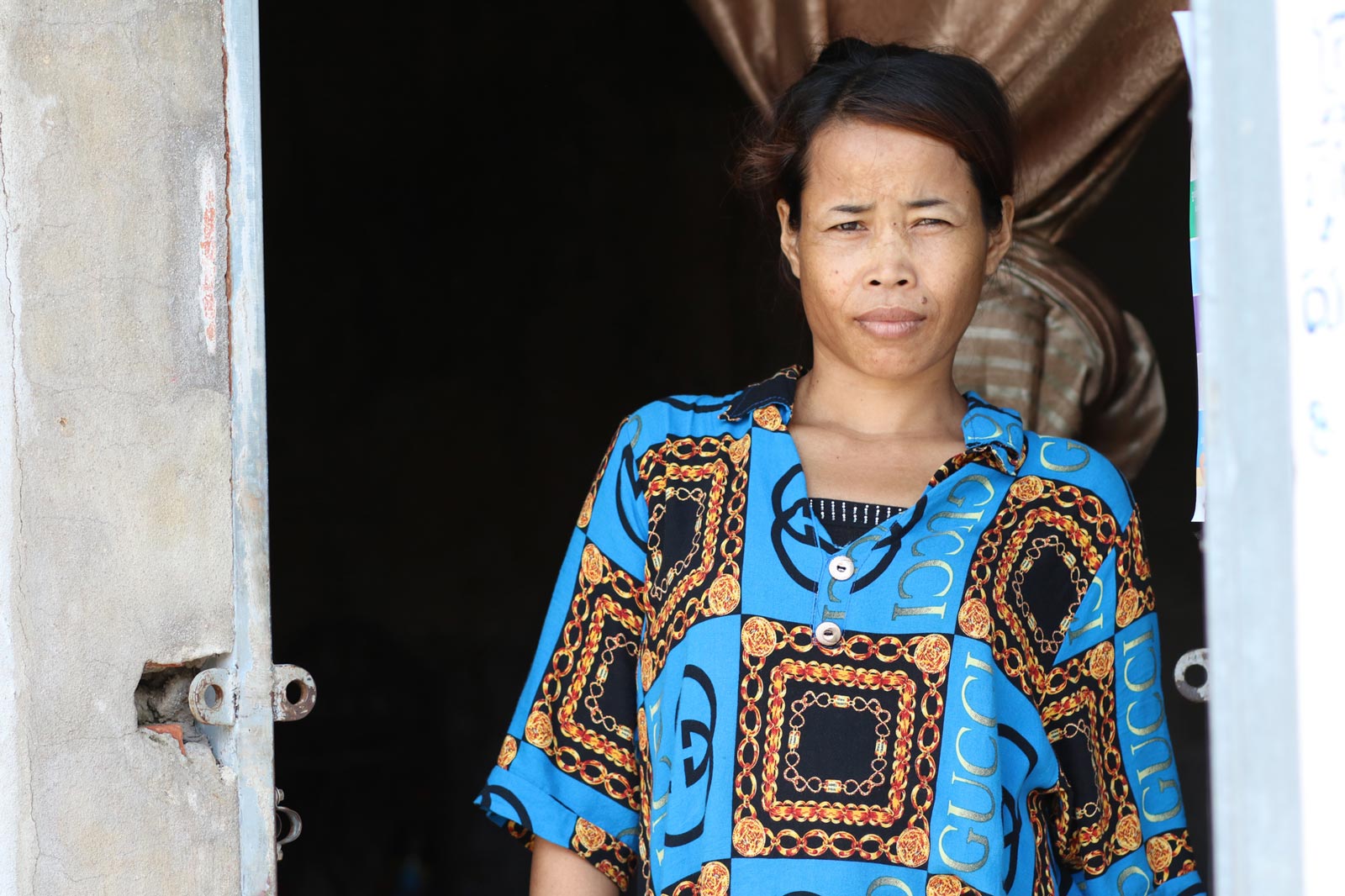
Single mother Srey Oun has also been relying on emergency rice distribution to help support her family as her work as a dishwasher has dwindled. “Now, I mostly work scavenging plastic,” she explains. But at approximately $2.50 per day, her income doesn’t stretch far in providing for five children.
In the community, some of those who were displaced in recent months by the building’s demolition moved in with other family members. Others built makeshift homes on the land where their original home once stood. How long they can stay here remains to be seen. But such conditions are a cause for concern, posing questions about how a community like this could cope with the spread of the virus if it were to arrive.
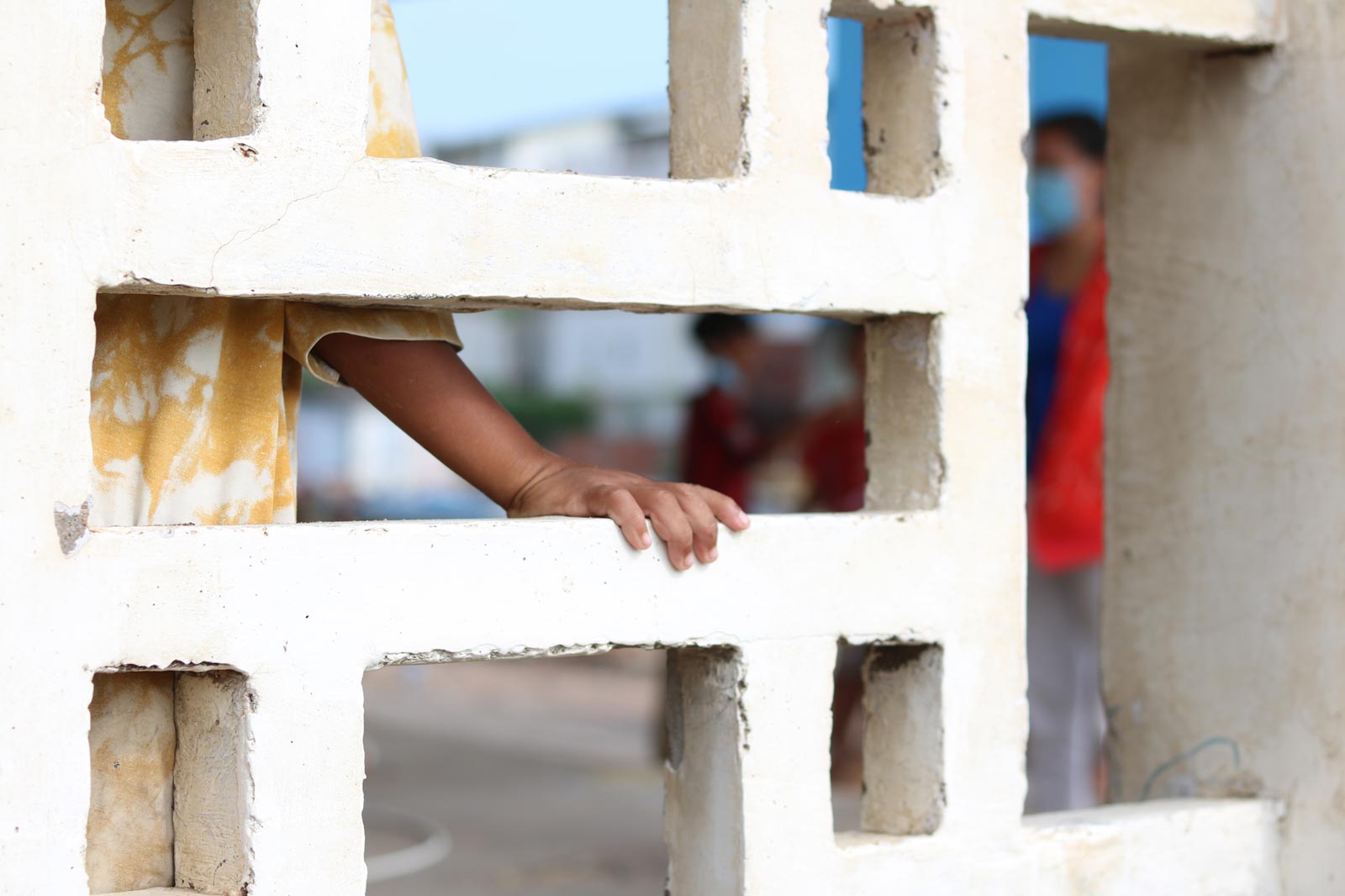
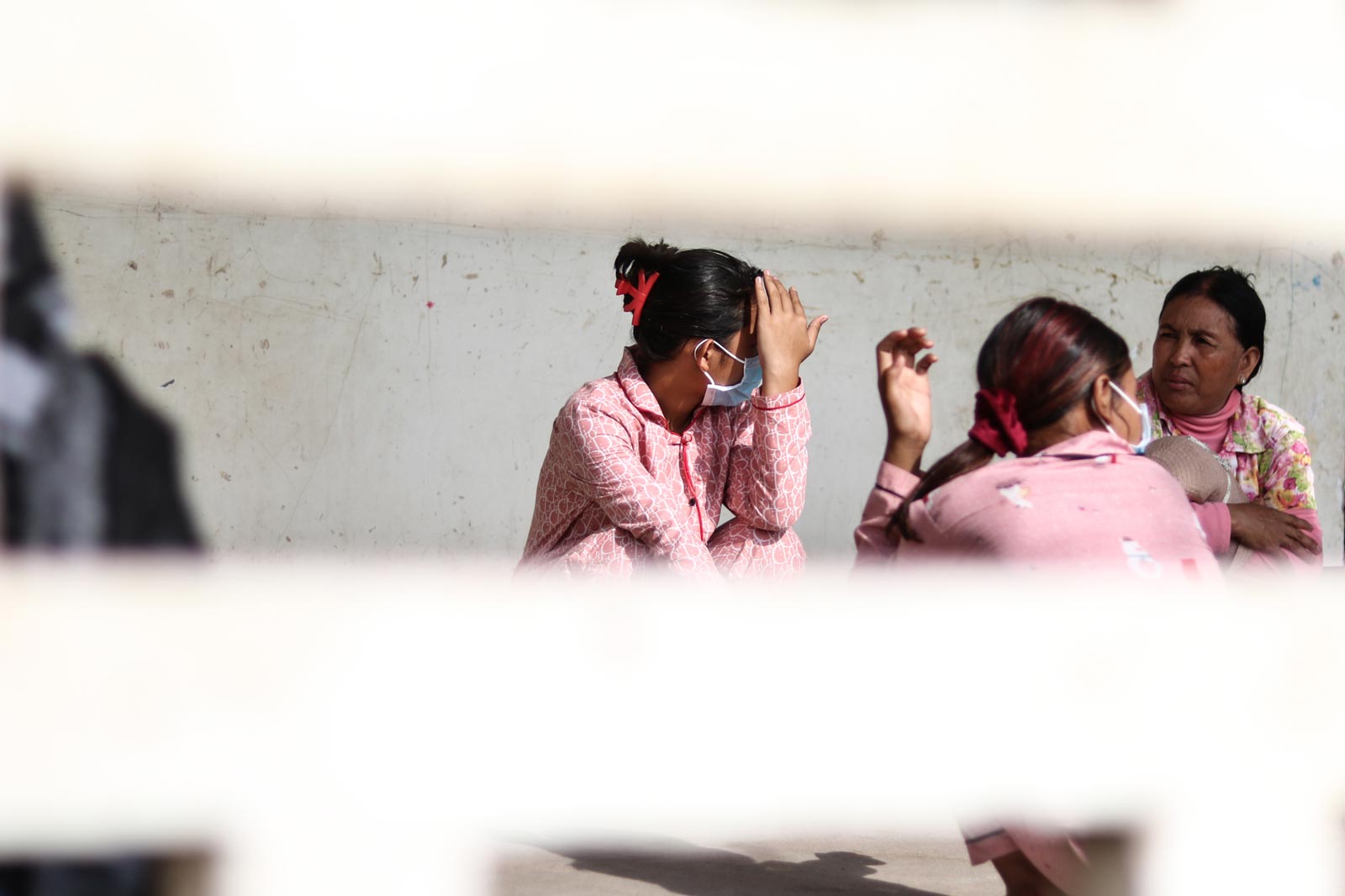
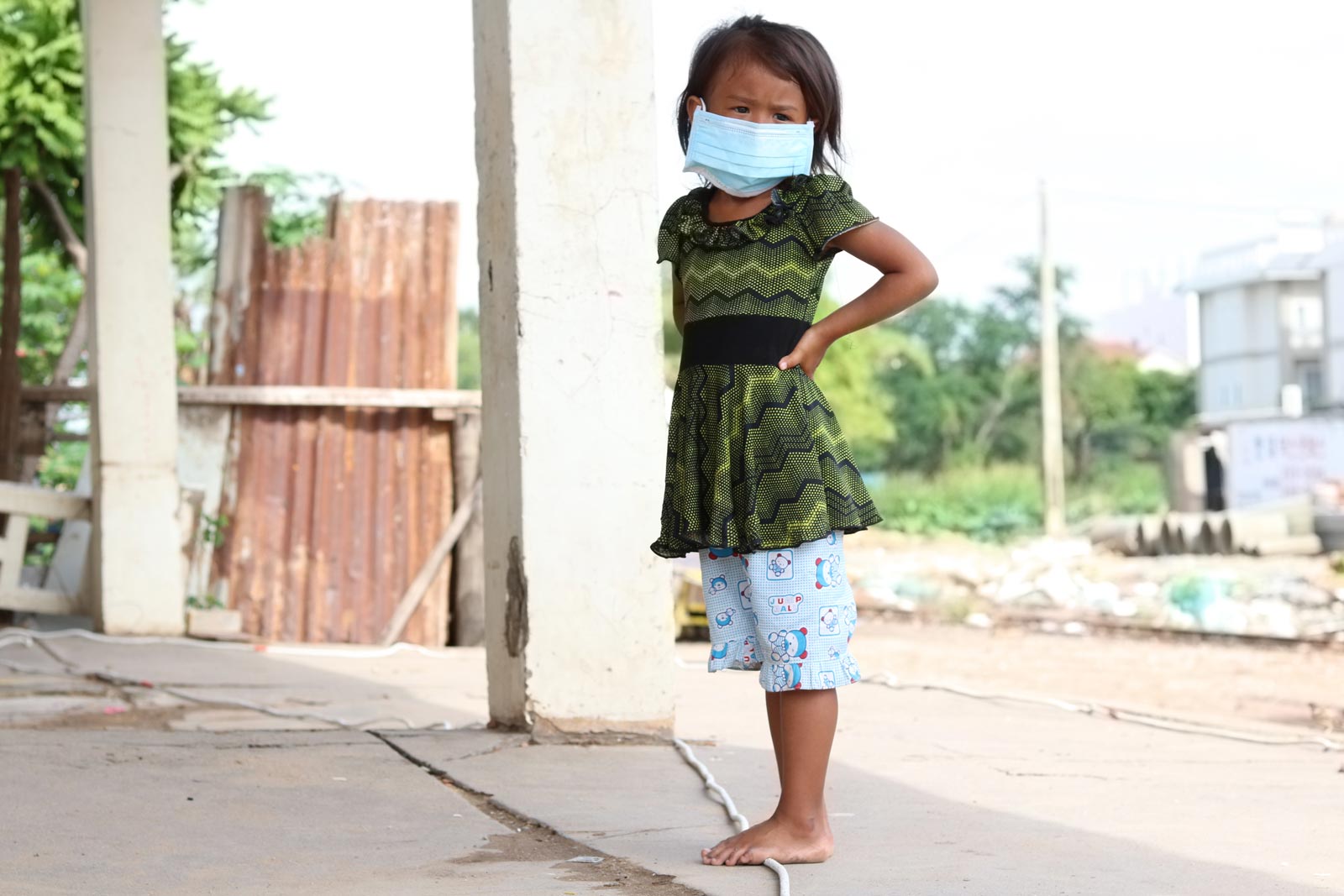
While best practices such as regular hand-washing, mask-wearing, social distancing, social isolation and quarantine are advisable, they are not always practical or possible in a settlement like this where space and sanitation is limited. Settlements like Posenchey are not designed to cope with a global pandemic. Here, families – in some cases three generations – share single rooms and access to safe and clean water remains challenging.
While Cambodia slowly moves to some semblance of normality, in the impoverished communities of the capital like Posenchey, the economic impact has proved sustained. Plastic prices remain low as children like Chana and Ley continue scavenging each night to make ends meet, Heng Thida still faces home insecurity and low sales in her shop, while Srey Oun struggles to feed her five children.
These are the lived experiences of Phnom Penh’s urban-poor during the Covid-19 pandemic, the effects of which are likely to be felt for some time yet.
*Some of the names of vulnerable children and adults in this story have been changed. This article has been written by Aide et Action as a part of a partnership with Southeast Asia Globe to highlight the economic fallout of Covid-19 for poor Cambodian communities. You can read more stories written by Aide et Action on social issues impacting the region here.
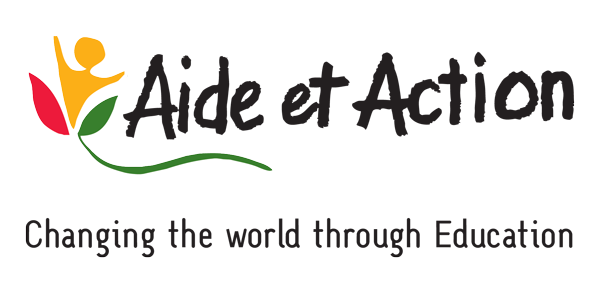
![[Photos] A Cambodian community’s struggle to survive virus economic fallout](https://southeastasiaglobe.com/wp-content/uploads/2020/07/IMG_2630.jpg)

